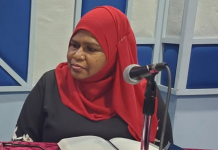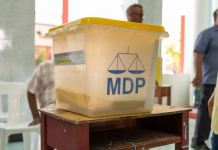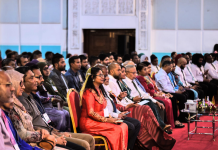Opposition Maldivian Democratic Party (MDP) Chairperson Fayyaz Ismail has resigned from his post, announcing the decision moments before concluding a meeting of the party’s National Council on Thursday night. A copy of his resignation letter outlines the reasons behind his departure and reflects on the deep rifts that have shaken the party in recent years.
Fayyaz said he resigned to prepare for the 2028 presidential election, noting that it had become increasingly difficult for the party to function smoothly while several senior leaders including himself harboured presidential ambitions. He stressed that these overlapping political interests created “serious challenges” and widening disagreements within the leadership.
In his letter, Fayyaz highlighted the strain within the MDP long before he became chairperson. He recalled the tension between former Presidents Ibrahim Mohamed Solih and Mohamed Nasheed, which had intensified around the 2022 party congress. That congress introduced key amendments to strengthen party governance, based on commitments from both Solih and Nasheed to resolve their differences through dialogue.
However, when both leaders signalled interest in contesting the 2023 presidential election, Fayyaz said he feared the party could fracture—posing a threat not only to MDP’s future, but to national stability. In an effort to avert a split, he said he held five rounds of talks with Nasheed’s faction at their request. Nasheed’s team proposed that he would not run if a referendum on the system of governance was held before the election, and pushed for MDP to back a parliamentary model. The talks ultimately collapsed without agreement.
Fayyaz said he later approached Nasheed once more, this time carrying a proposal from Solih. The two sides reached a new agreement: Solih would run as the MDP presidential candidate, a governance referendum would be held before the election, and the party would not take an official position on the referendum. Fayyaz described this breakthrough as a moment that restored his hope for unity and electoral victory.
But the pact quickly fell apart. According to the letter, some senior party figures persuaded Solih not to honour the agreement, resulting in both Solih and Nasheed contesting the MDP primary. “At the end of the primary, we lost our friends who had spent many years together working for reforms,” Fayyaz wrote. “The party, as a family, was divided—and we lost the presidential election.”
The internal rifts continued into the parliamentary elections. Fayyaz said a proposal to form a united coalition between the two factions was not rejected, but the party still failed to move forward together. As a result, he noted, the MDP lost several parliamentary seats by narrow margins that could have been avoided had unity been maintained.
Fayyaz expressed his gratitude to MDP members for their trust and cooperation, adding that he is proud of the administrative and organisational reforms achieved during his tenure. Despite stepping down as chairperson, he pledged to remain active within the party—as a member of the National Assembly and as an ordinary member committed to the party’s future.
His resignation marks a significant moment for the MDP as it attempts to rebuild after consecutive electoral setbacks and ongoing internal turmoil, while Fayyaz now turns his focus toward the road to 2028.


















